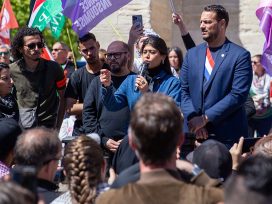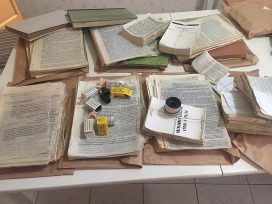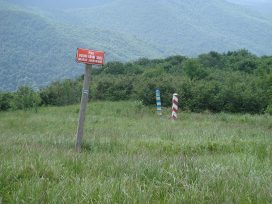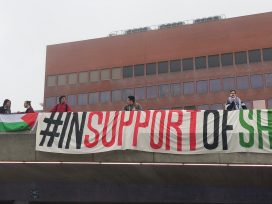 Many years ago, I wrote these lines, which remind myself that “the smell of exile” has always been like a vulture hovering over my head, our heads:
Many years ago, I wrote these lines, which remind myself that “the smell of exile” has always been like a vulture hovering over my head, our heads:
Red hills, and the smell of exile,
Exile breathing over our shoulder
in a race that already looks desperate.
Red hills, and the pulse of exile
telling us this is home no more.
A few years before I decided to leave my country, I raised some money for a poor school’s library. I had painfully discovered that the library was four empty, miserable walls and a roof, nothing else. Not a single book. Just bare walls. I told some European friends this sad story and they put together some money for the school to buy only African books – not a bad condition.
On receiving the money, the school director did as per request: bought several hundred Zimbabwean books, children’s stories, short novels, some poetry, all sorts of exciting texts.
Come the time to open the library with books, the school director asked me to be the guest of honour, meaning I would make the main speech. Also invited was the Regional Director of Education for Harare, the Member of parliament for the area, and other education officials.
The ceremony was to be out in open air. As I walked into the school yard, all the official chairs were empty. I sat there at the front, alone with the director of the school, who told me:
“They refused to come because of you. They said you are too political and they would not share a platform with you.”
For me, that was one of many incidents of internal exile, and I feared for the school director’s job security. But he assured me:
“Don’t worry, I am retiring in two months.” The following week he was summoned to the Ministry of Education to explain why he had invited a controversial writer to the school without official clearance.
The second incident was almost the same. Students at the local high school were studying my novel, Bones. The teacher, a former colleague and fellow college student, invited me to give a lecture. I went and talked to the students about my own experience creating the novel.
But on leaving the school, the teacher and I encountered an irate school director. What was I doing in his school without his knowledge and government clearance? he demanded to know.
“But Sir, how can I need clearance to come and talk to my local school about my book? It is my novel which should have sought government clearance,” I responded, rather derisively. The school director was deeply offended and he stormed away, threatening immediate punitive action.
And the teacher was soon on suspension from his duties. While on suspension, he found another job and never returned to the school again.
The two incidents show that I was already in internal exile before I physically left. How many times had I been approached by education officials demanding that I remove “political” passages from my books before they be allowed into schools! I refused every time.
Time passed and I decided to leave the country: external exile, geographically but not emotionally. In this new exile, I have learnt to cherish hearing the voices of my country more intensely; the songs of the local birds echo in my dreams with a new freshness. For I had not been able to listen to them enough as I busied myself with so many wounds on my heart and soul. I had ignored even the flame lily, our unofficial national flower. But now in this new exile, my poetry vibrates with the sound of the flower as it speaks to me in a new language of longing, a language of desire, a voice of a deep yearning which makes me write.
Creativity is a space for solitary longing, the desire to be elsewhere in space and time, to be in a new ideal world where life is as it should be.
For me, physical exile has nourished me with new literary and artistic voices. Sometimes there are new empty spaces when I take my pen and cannot name the trees and the birds I see through the window. It becomes a dialogue with myself as I struggle to create a new language for a new soul which is a complex mixture of the old and the new. The new voices flood my soul and I begin to hear my own voice more clearly, in the snow, in the winds that blow from wrong directions, in the people who sometimes seem so distant from my vision of the world. But somehow, we manage to meet if we search deeply enough.
So, exile can be an inspiration because of the desire it creates in the writer. But it can also be a destructive force depending on how the exile himself or herself treats it. Exile can be a place of tears, but it can also bring new joy as one creates new smiles and new characters in the texts.
In France, I wrote the poetry collection Blind Moon and a children’s story, The Keys of Ramb. In both, I had to create a new language, new metaphors and images. The imagery of the poetry is my way of re-discovering the various methods of torture inflicted on those who have to leave their motherland. There are writers, musicians, doctors, nurses, and teachers who sometimes have to be forced to do menial jobs in order to express themselves in their work. What I have discovered is that all those professionals work harder in their new foreign locations than they did at home where the dictatorship ignored them as if they are trash.
In Norway, I have written a play, Travel News, acted by Norwegian actors and actresses all over the country and watched by thousands of people. I make Norwegians travel to Africa and think about being “guided tourists”, who return from turbulent societies only to talk about wonderful scenery and wild life, instead of the people who live their daily lives in the pain and laughter of those foreign lands.
Creativity has always been a search for possibilities for me. And that search never ends, whether I am in internal or external exile. Human identity cannot be reduced to a mere physical space. It is more than that: it comprises of the emotional-psychological and historical landscapes that we carry as we move from one type of space to another. That is where creativity begins: this journey without maps.

 Many years ago, I wrote these lines, which remind myself that “the smell of exile” has always been like a vulture hovering over my head, our heads:
Many years ago, I wrote these lines, which remind myself that “the smell of exile” has always been like a vulture hovering over my head, our heads:





